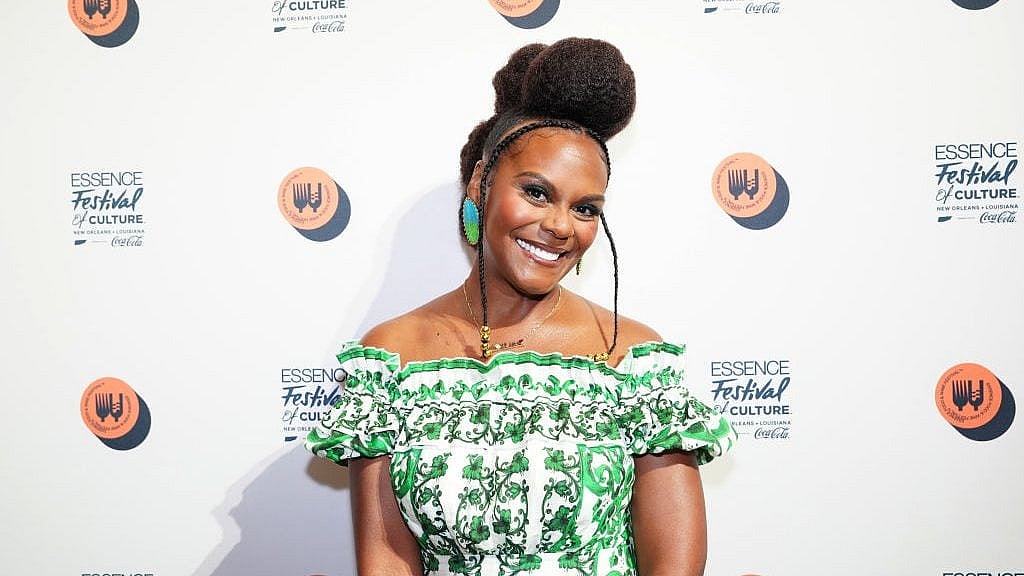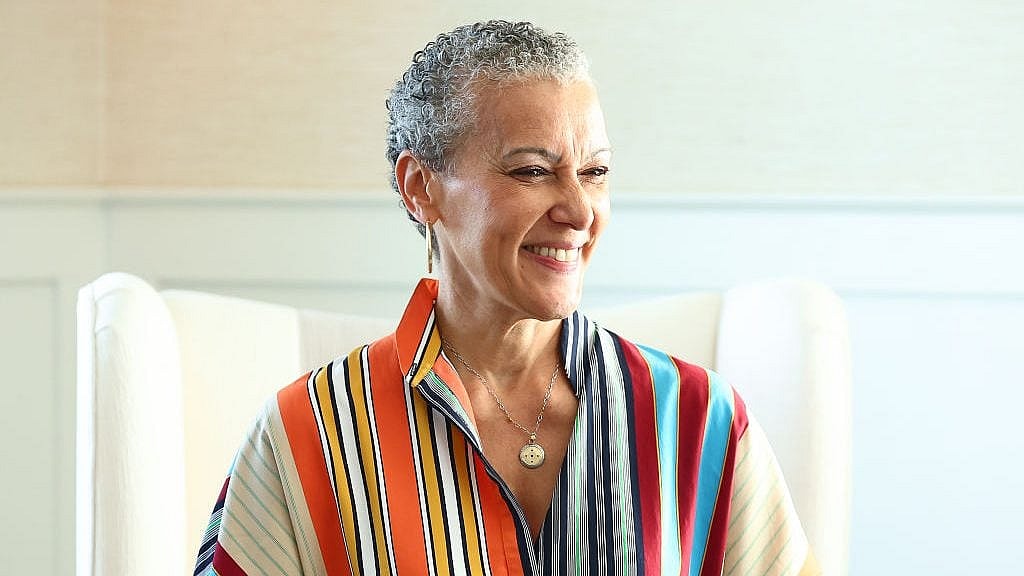Tabitha Brown is at a point in her life where listening to her body is non-negotiable.
For instance, while working out with her daughter recently, the 45-year-old vegan food entrepreneur and influencer reached a point in her workout where she simply had to stop.
“My lower back was hurting so bad and I still was trying to, like, push through the workout, but it got so bad. I was like, ‘Wait a minute, my body’s telling me that I can’t do this. Like, I can’t do this.’ So I had to take, like, a little ten-day break until I healed,” she told theGrio.
Ultimately, Brown, who had been training with her daughter for roughly two weeks before the incident, discovered she had experienced a slipped disc.
“I’m still healing,” she said.
As many women know, this is one of the realities of entering perimenopause, an often prolonged period in a woman’s aging body before she enters menopause. While it can begin in a woman’s mid to late 30s, it typically kicks off in the 40s. Symptoms can include hot flashes, changes in sleep patterns, joint pain, hip pain, and itchiness, which Brown describes as the “weirdest” of all.
“It is the weirdest thing. Like, your back be itching, your legs be itching. It’s so weird. Oh, it’s so weird,” Brown said with a laugh.
The Donna’s Recipe haircare co-founder wishes more women were open about perimenopause; particularly one of its symptoms that goes largely undiscussed: bladder leaks or bladder incontinence.
“When I started talking about perimenopause on social media, the engagement went through the roof,” Brown noted, adding. “What I realized is women are suffering silently and not talking about things that are important to them, that they’re going through.”
Brown said bladder incontinence or bladder leaks is exactly what it sounds like: “Girl, I just peed myself!”
“It happens in different ways,” she continued. “Some women maybe can’t even hold their bladder as long as they used to. Some women, it’s just that it’s weaker now, so doing things that you’re normally used to doing, like working out, you may experience a little bit of leakage.”
Some women develop bladder leaks as a result of giving birth. However, as Brown noted, many who never gave birth develop the condition in time.
“It comes with age,” she said.
Recommended Stories
According to the Mayo Clinic, half of all women will experience bladder leakage in their lives. It can begin as women produce less estrogen, a hormone that helps keep the lining of the bladder and urethra healthy, which can result in weaker bladder muscles.
When Brown first started experiencing leaks, she was in her mid-30s and had just given birth to her youngest child. Initially, the common bladder condition led her to avoid working out in public.
“I would feel like, ‘Oh, I don’t want to work out around the people, just in case,’” she explained, adding, “I would only wear, like, black tights and not color. And I love color.”
She continued, “Now, I don’t mind at all. I put my little Always Discreet on and go about my business.”
To further the conversation around women’s health, Brown has partnered with Always Discreet, a line of pads and disposable panties meant to capture bladder incontinence, postpartum symptoms, and more. Brown figured since she doesn’t naturally get embarrassed, “Let me be a part of this conversation.”
Most importantly, the actress and media personality hopes others don’t let symptoms of perimenopause, like bladder leaks, keep them from enjoying their lives. Though she may be known for the phrase “That’s your business,” since entering this phase and encouraging transparency about it, she’s learned many other women avoid normal activities like she once did.
“I want to push those women back into living,” she expressed.
However, Brown hasn’t been soldiering through her mounting perimenopausal symptoms without some more significant intervention. She attests that going vegan and remaining gluten-free has also made an impact.
With multiple brands now under her name, the food influencer went vegan at around the age of 38 and has since been open about the many health advantages she’s experienced, including reduced perimenopausal symptoms.
“It has been so much better. It still happens, but it’s not like where I don’t know when it’s going to happen like I kind of know when it’s going to happen versus when I had my son, I didn’t know when it was gonna happen. It just started happening,” the mother of two explained.
She said it’s been about understanding “how we listen to our body. Our body responds to different things. When it tells us something, we have to listen to it.”










